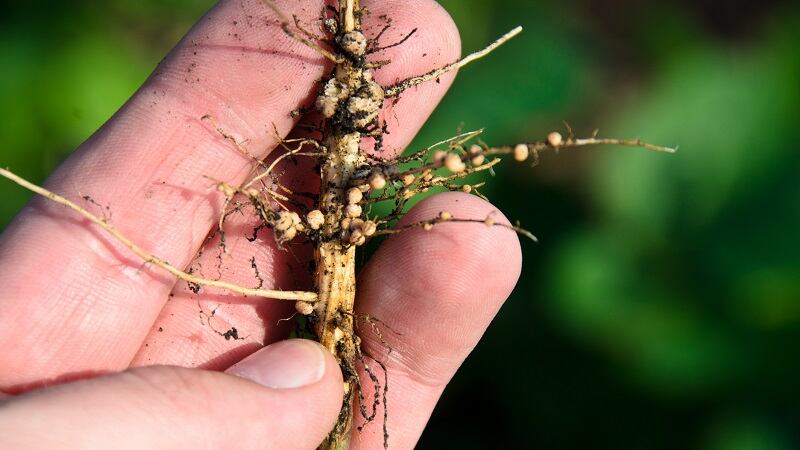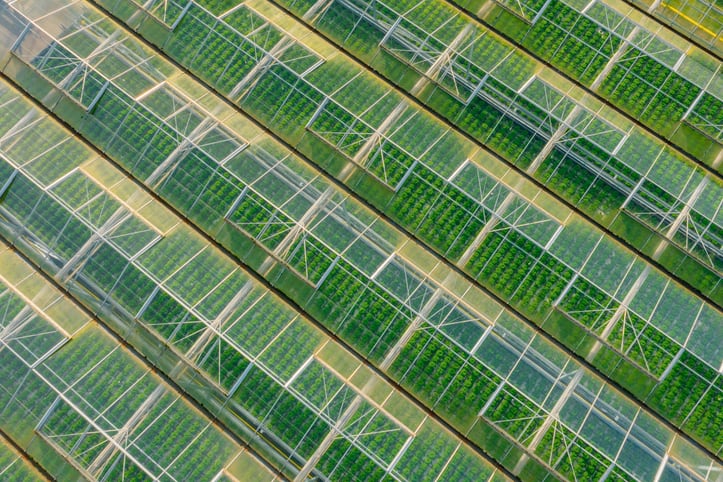Ag input company Indigo Ag is helping soybean farmers address one of their largest pest problems ─ soybean cyst nematode (SCN) ─ with a biological that first launched in Brazil but is now making its way to the U.S. with Environmental Protection Agency approval, Jon Giebel, VP of North America commercial, biologicals, told AgTechNavigator.
Part of its Biotrinsic portfolio, Nemora FP is a bionematicide seed treatment, derived from a strain of Pseudomonas oryzihabitans and designed to address SCN, a widespread problem in North America and in South America, Giebel explained. SCN can reduce yields by more than 30%, according to the University of Minnesota.
“All of our products are able to quickly form a colony, like our gut microbiome, that expands as the plant grows and is able to provide continuous protection. So, we found Nemora through screening our collection of endophytes, looking for microbes that had specific benefits in the lab and greenhouse tests for soybean system and nematode control, among others. And then when we expanded that product into field testing, we confirmed that, yes, this microbe is able to colonize roots and provide a zone of protection for growing soybeans against SCN,” Giebel elaborated.
Initially, the seed treatment was launched in Brazil under the name of Biotinsic N11 and launched in the U.S. under the name Nemora FP. Brazil is a major market for biologicals, and the Brazilian Agricultural Research Corporation (Embrapa) “has heavily adopted biologicals and does a really good job of promoting it to Brazilian farmers as a key control measure,” Giebel noted.
“Brazil is a huge soybean market. Pest pressure is extremely high, and the use of biologicals in Brazil is also a common practice. So, it has been adopted very quickly. It has great field results after two years of commercial sales in Brazil, where we were competing with the premium tier of biological soybean cyst nematode products. And based on our lab data and those two years of strong commercial success ... that is what led us to launch the product here for U.S. farmers,” he said.
Meeting farmers, ag retailers where they are at with CLIPS
Ag biologicals are gaining market traction, but the product class has faced adoption obstacles, whether that be a lack of cold storage or farmers just not knowing how to use the product, Giebel noted.
“One of the issues that we see globally for biologicals is the difficulty in adopting them into standard agricultural practice. They can be sensitive and difficult to use. So, in Brazil, for example, you have a really large labour force and lots of farm hands that are able to do some additional manual labour that in many US operations, farmers just won’t do it because they have a small number of people working a lot of acres,” Giebel explained.
“At the end of the day, we need to be the ones innovating to make sure our products are simple to use, and we are not asking a behemoth of an ag company to change in order to implement our product into their lineup.”
Jon Giebel, VP of North America commercial, biologicals
Indigo developed a hand-free dry powder seed treatment device, called Clips, providing a form factor for easily using biologicals, Giebel explained. Clips is attached to a ProBox with the seed treatment releasing as the seed moves out of the bin, he added.
Clips was not only designed to make it easier for farmers, but the device is also crucial for ag retailers educating growers on the benefits of biologicals, he said.
“We in industry need to meet the ag retail system where it is at because it is a much bigger beast, and asking our one product class to be treated differently is one of the challenges of missing that mass adoption,” he elaborated.
He added, “At the end of the day, we need to be the ones innovating to make sure our products are simple to use, and we are not asking a behemoth of an ag company to change in order to implement our product into their lineup.”



